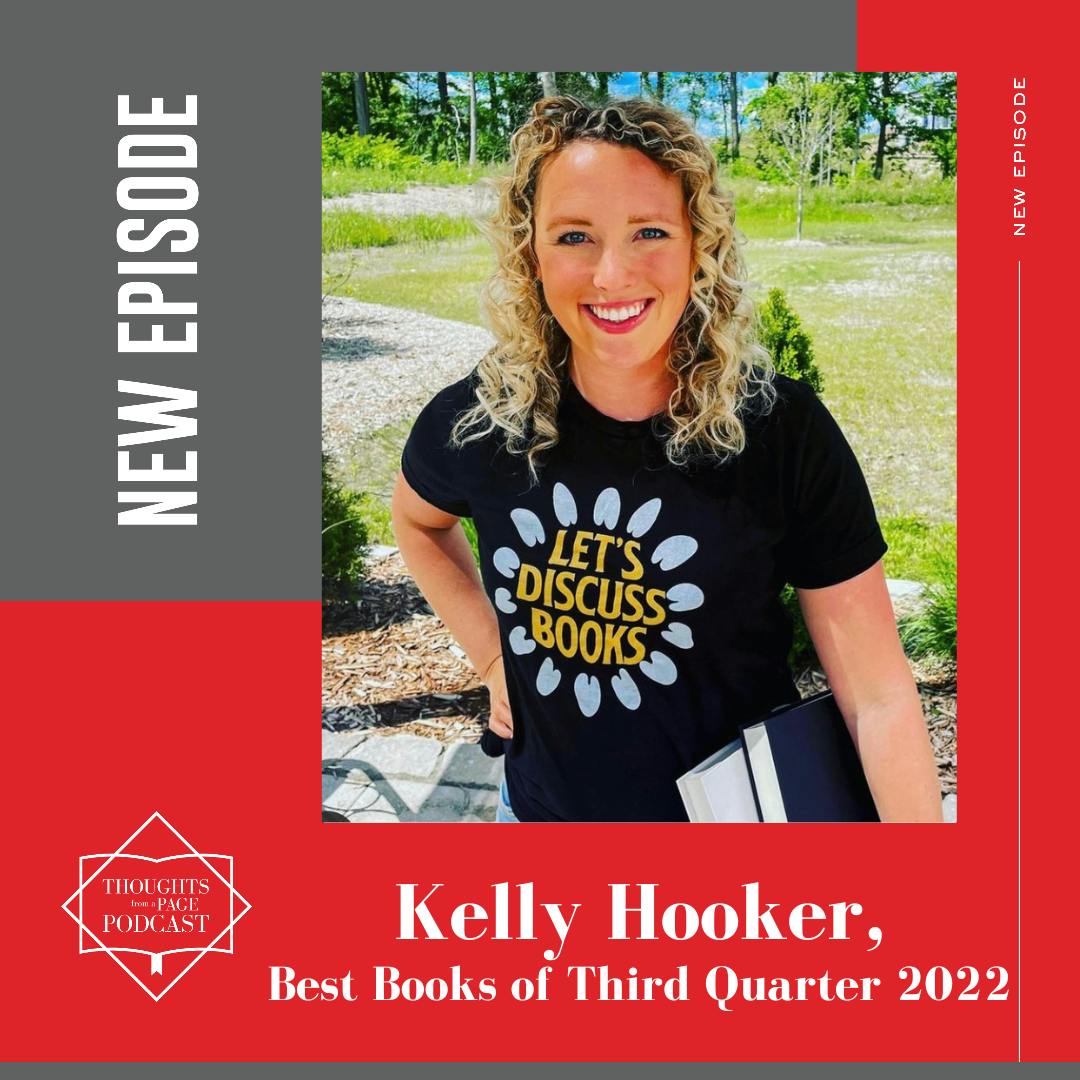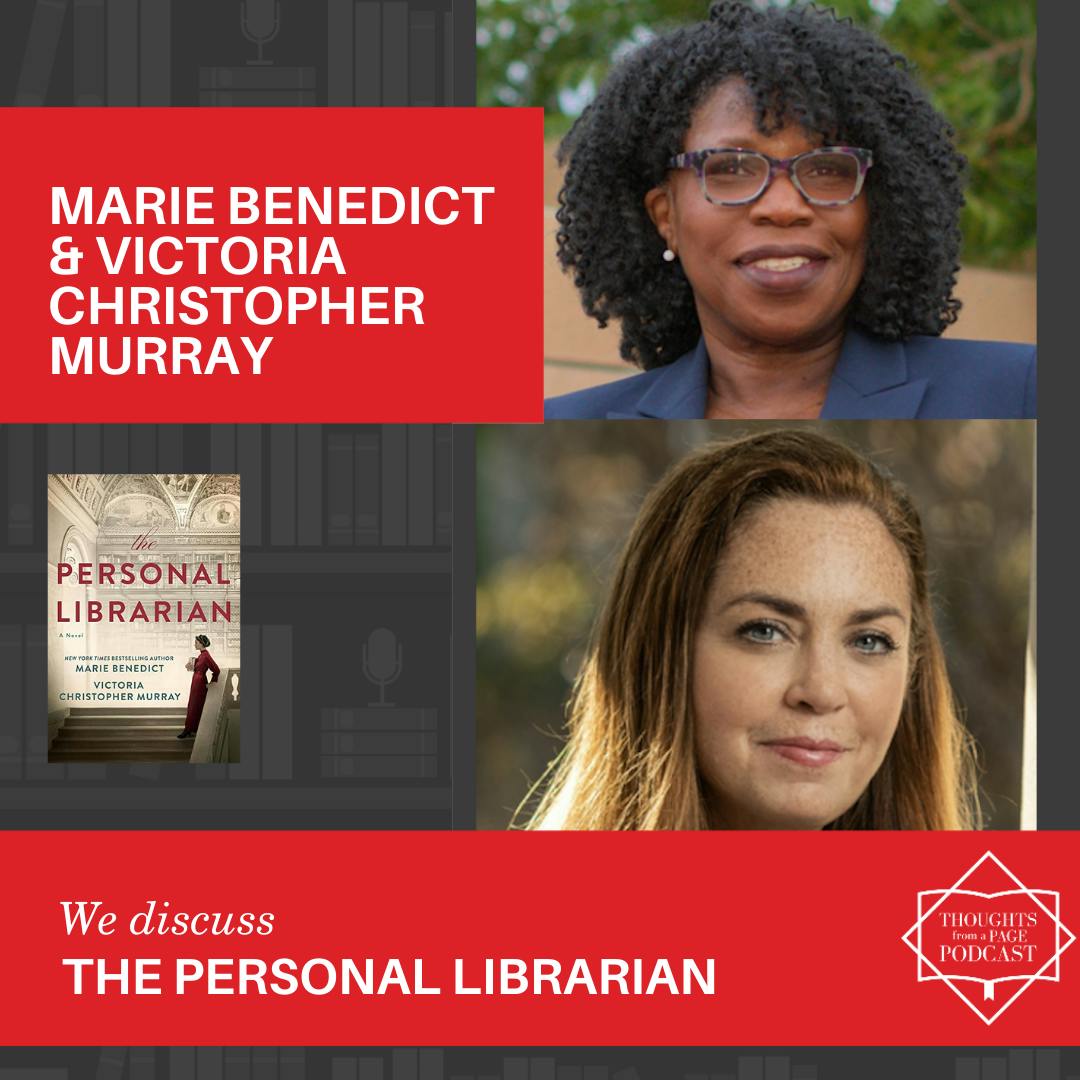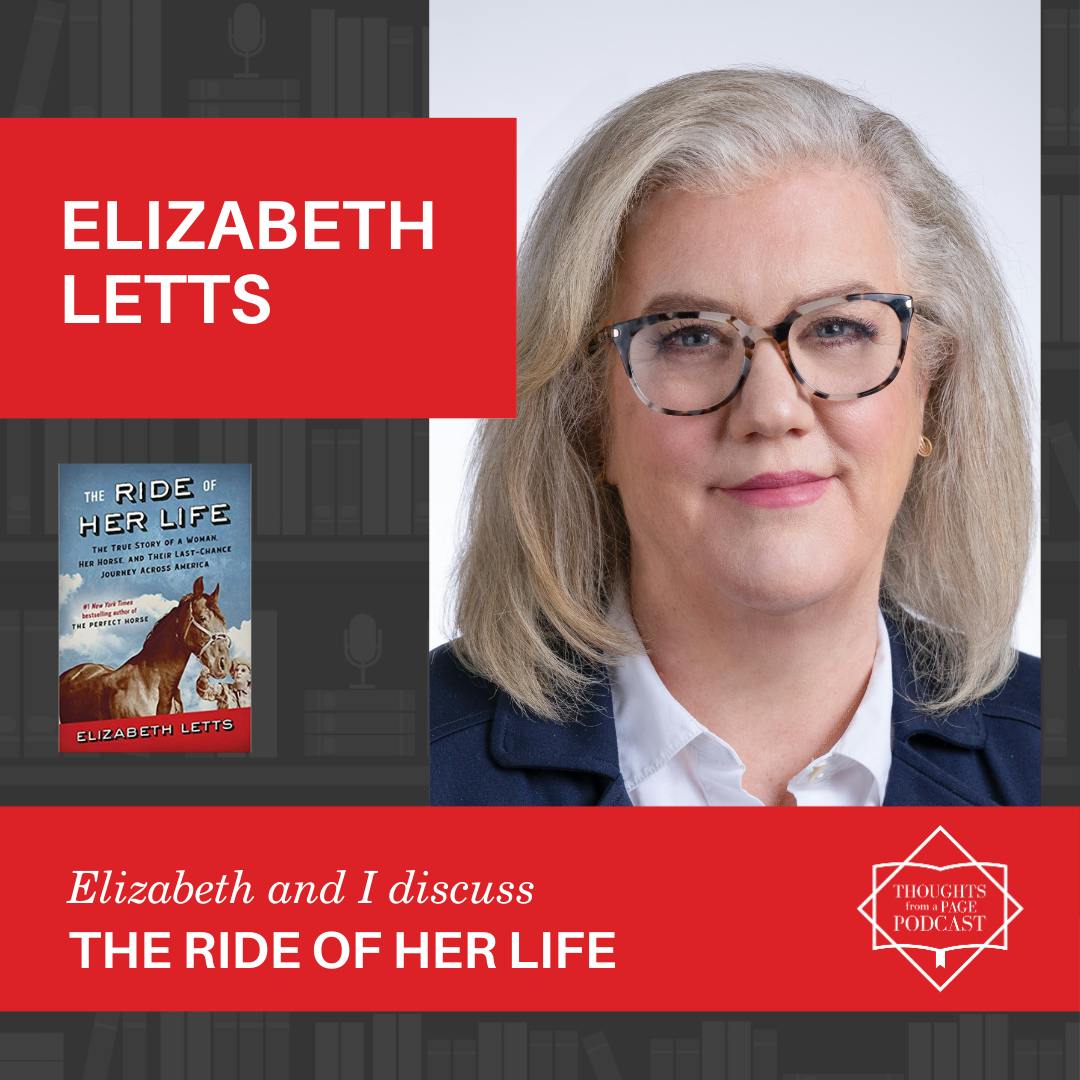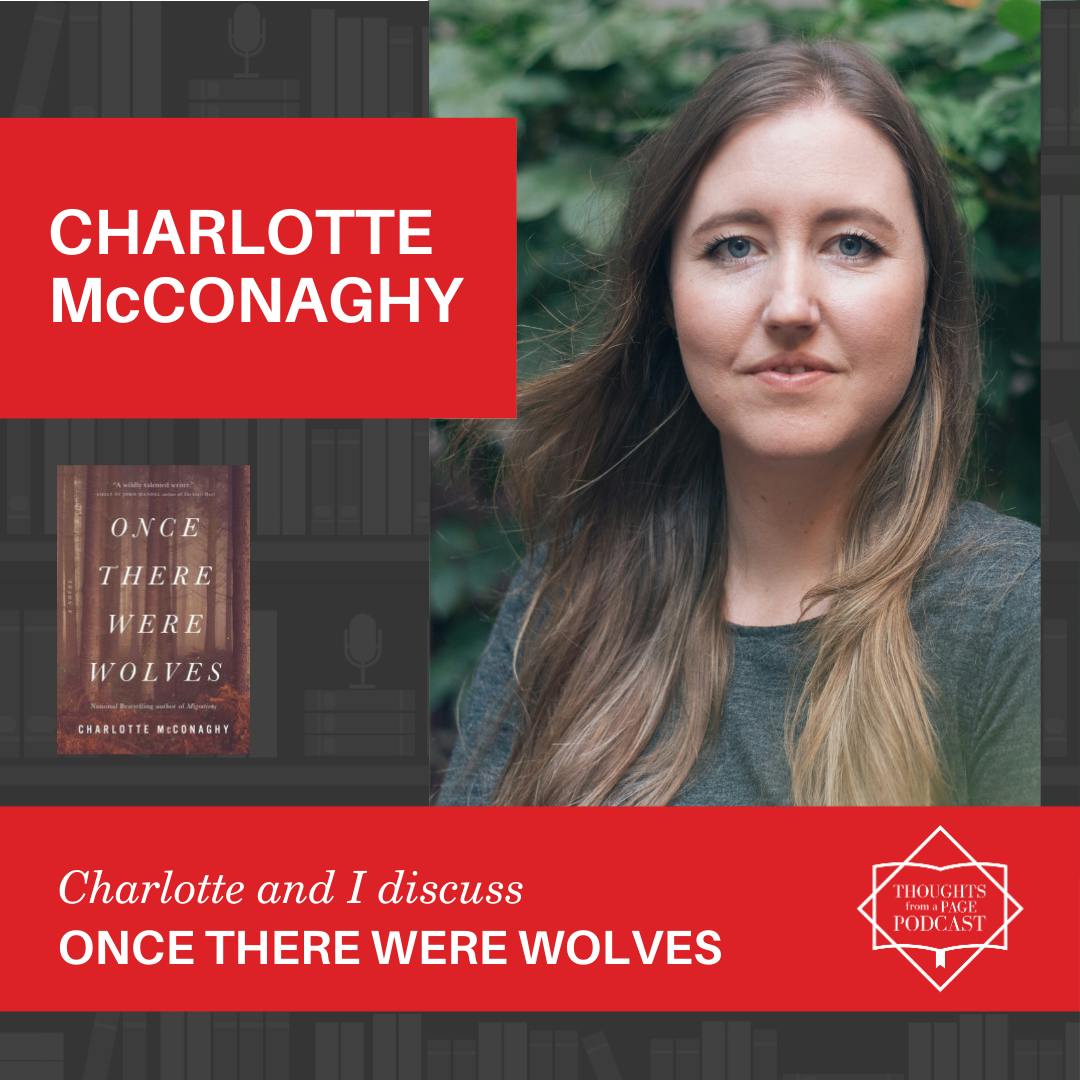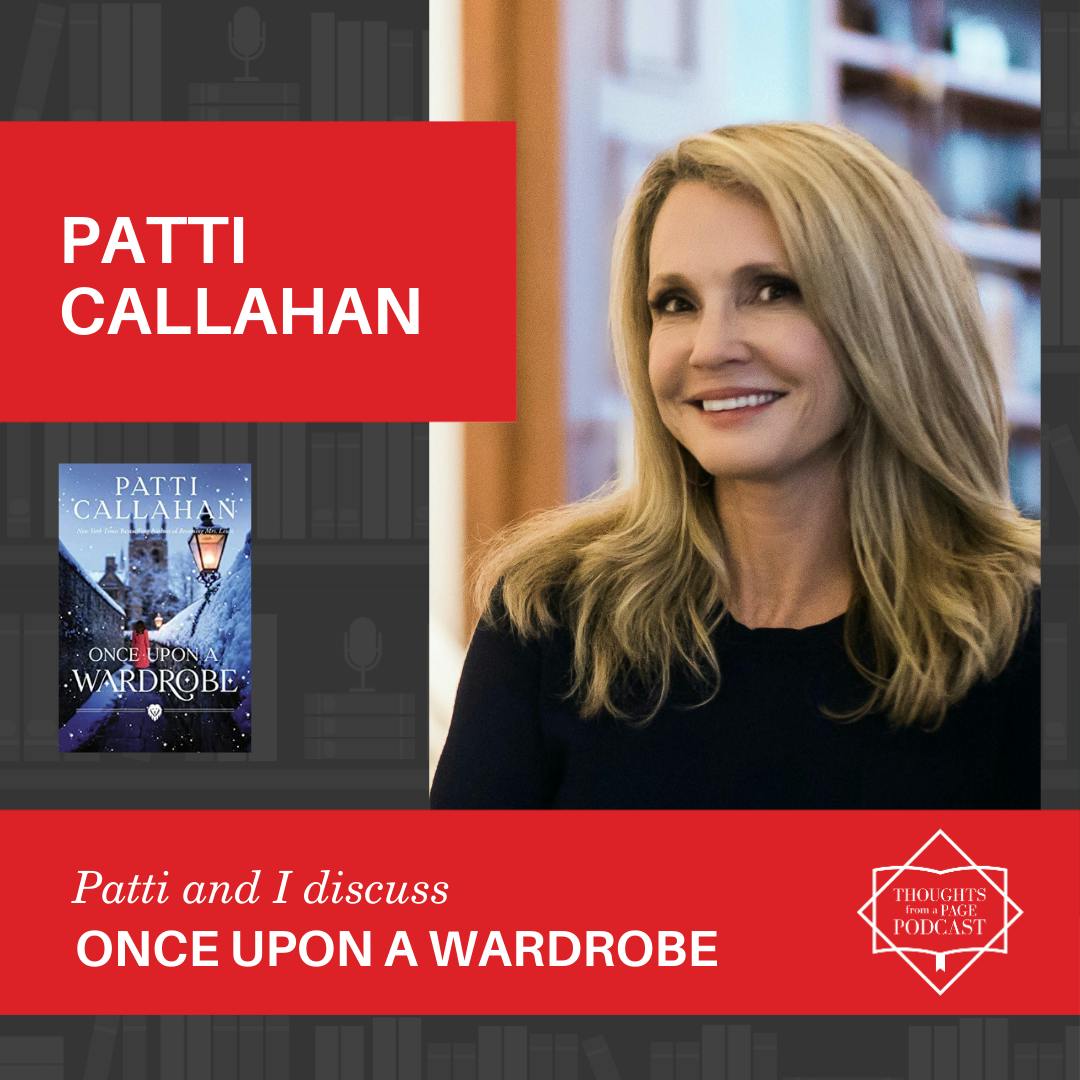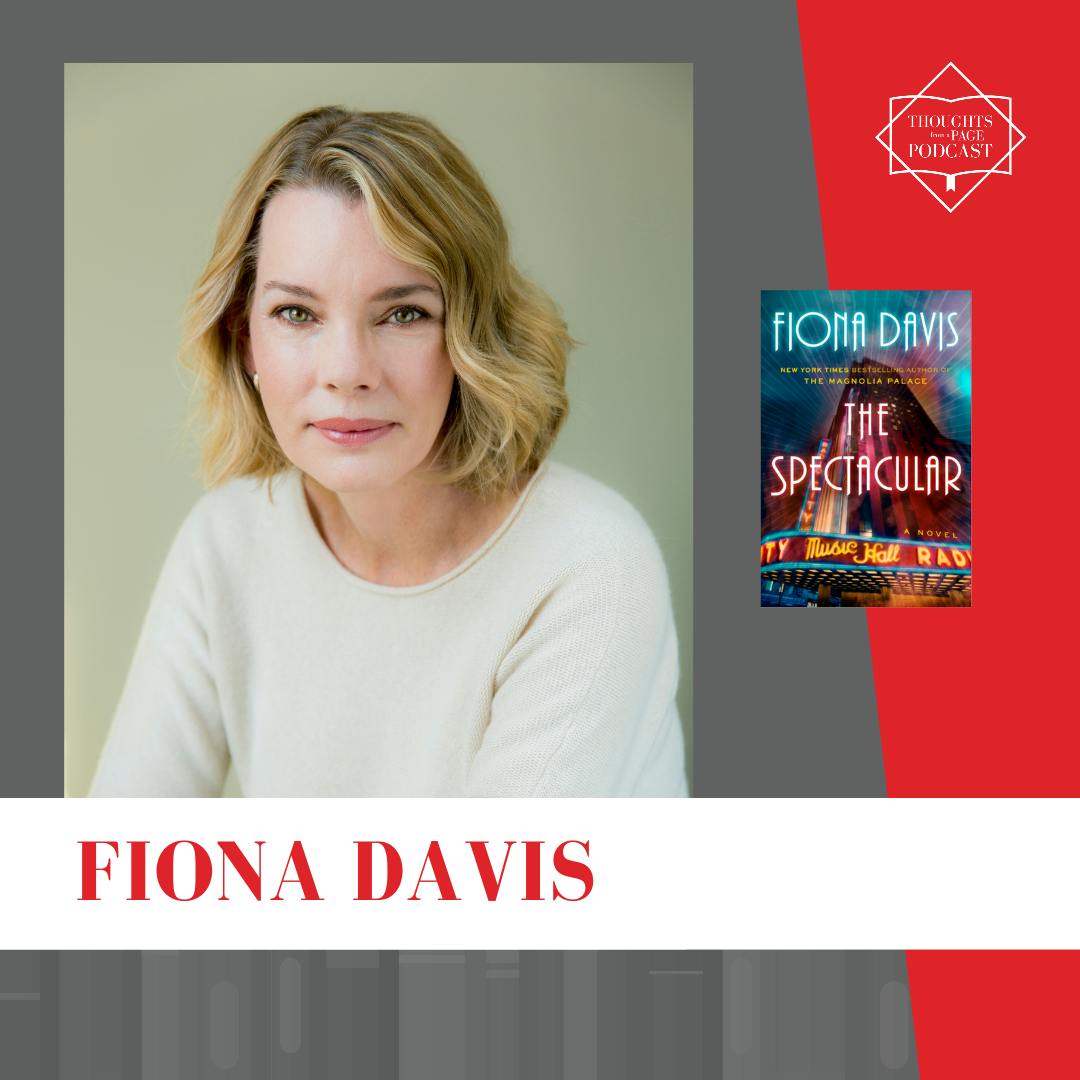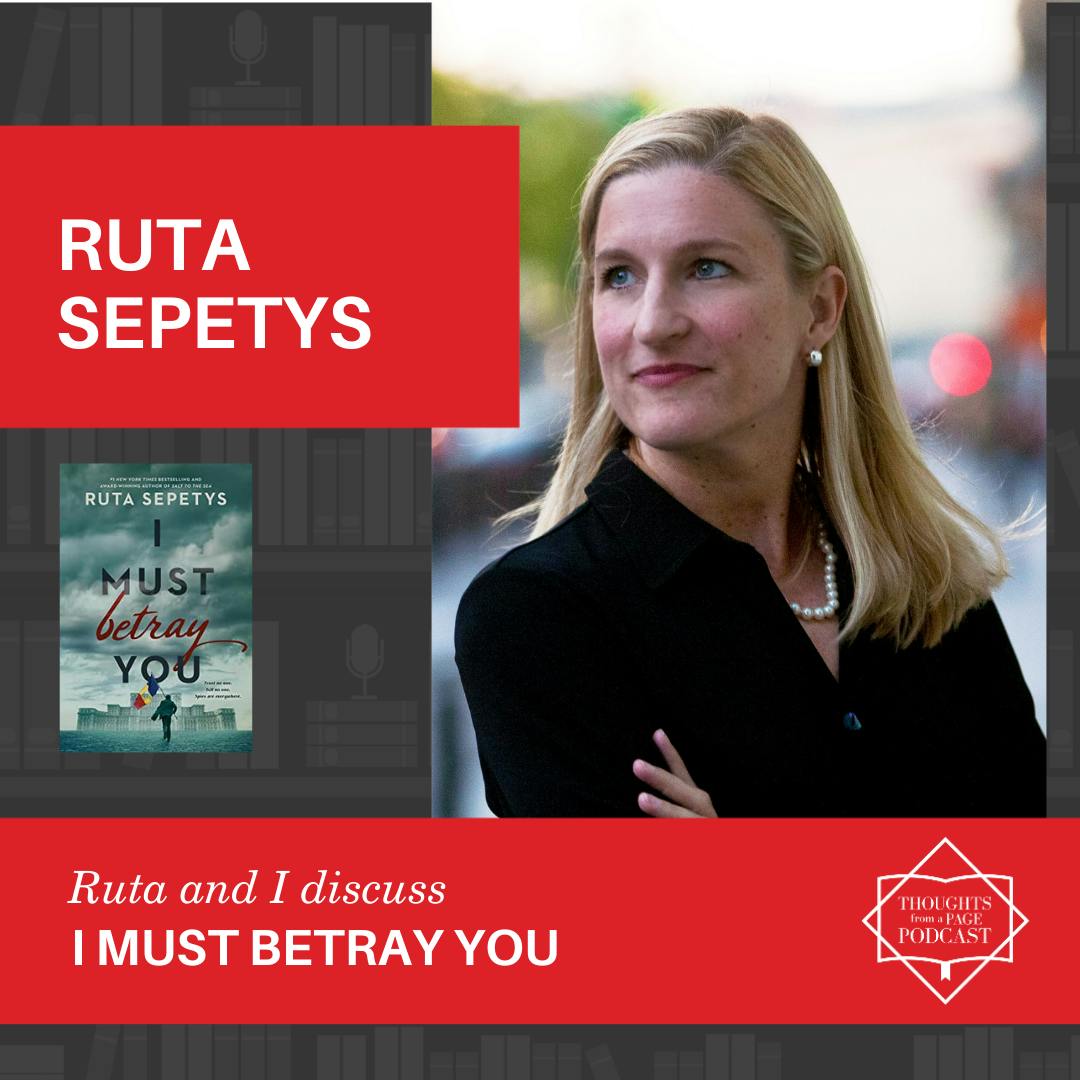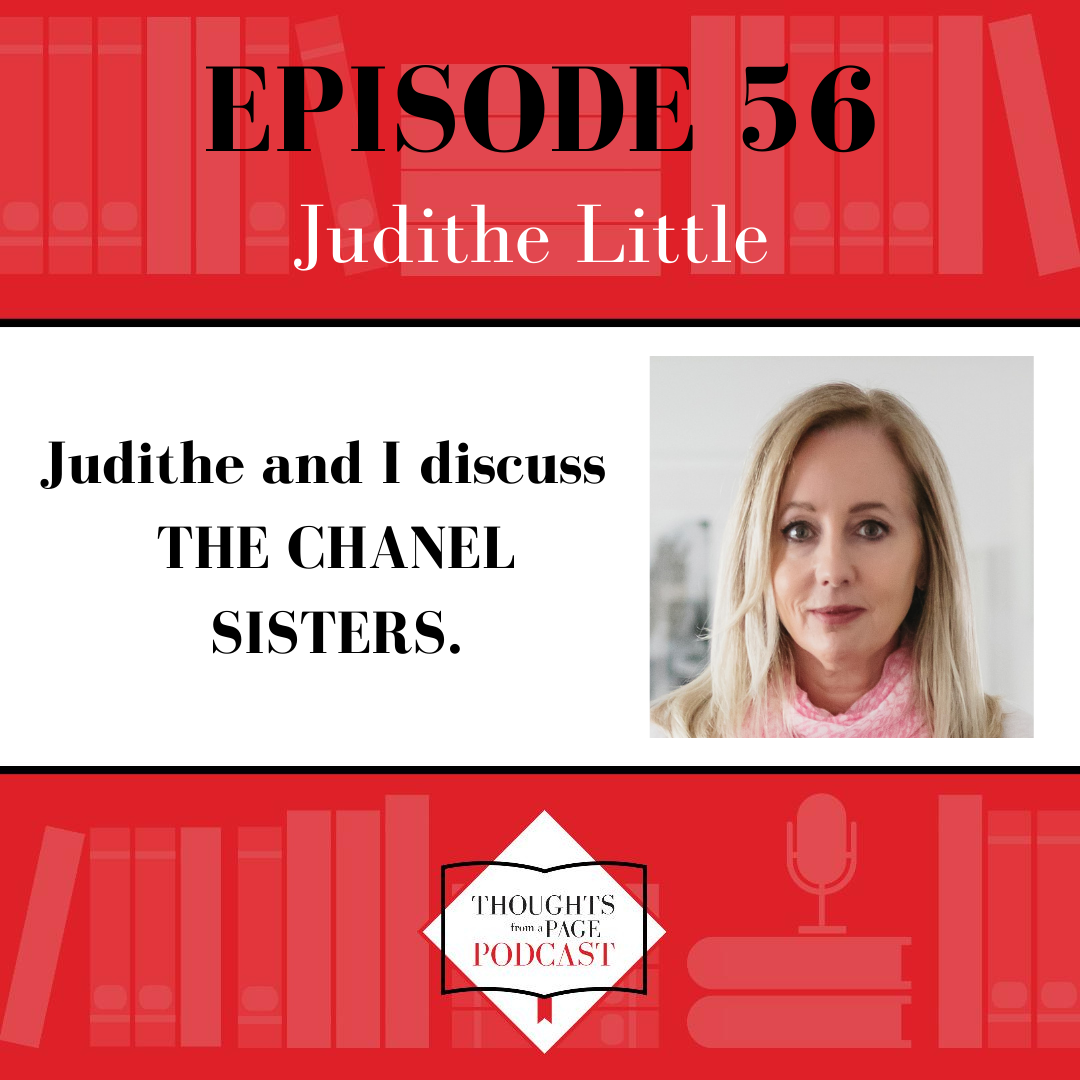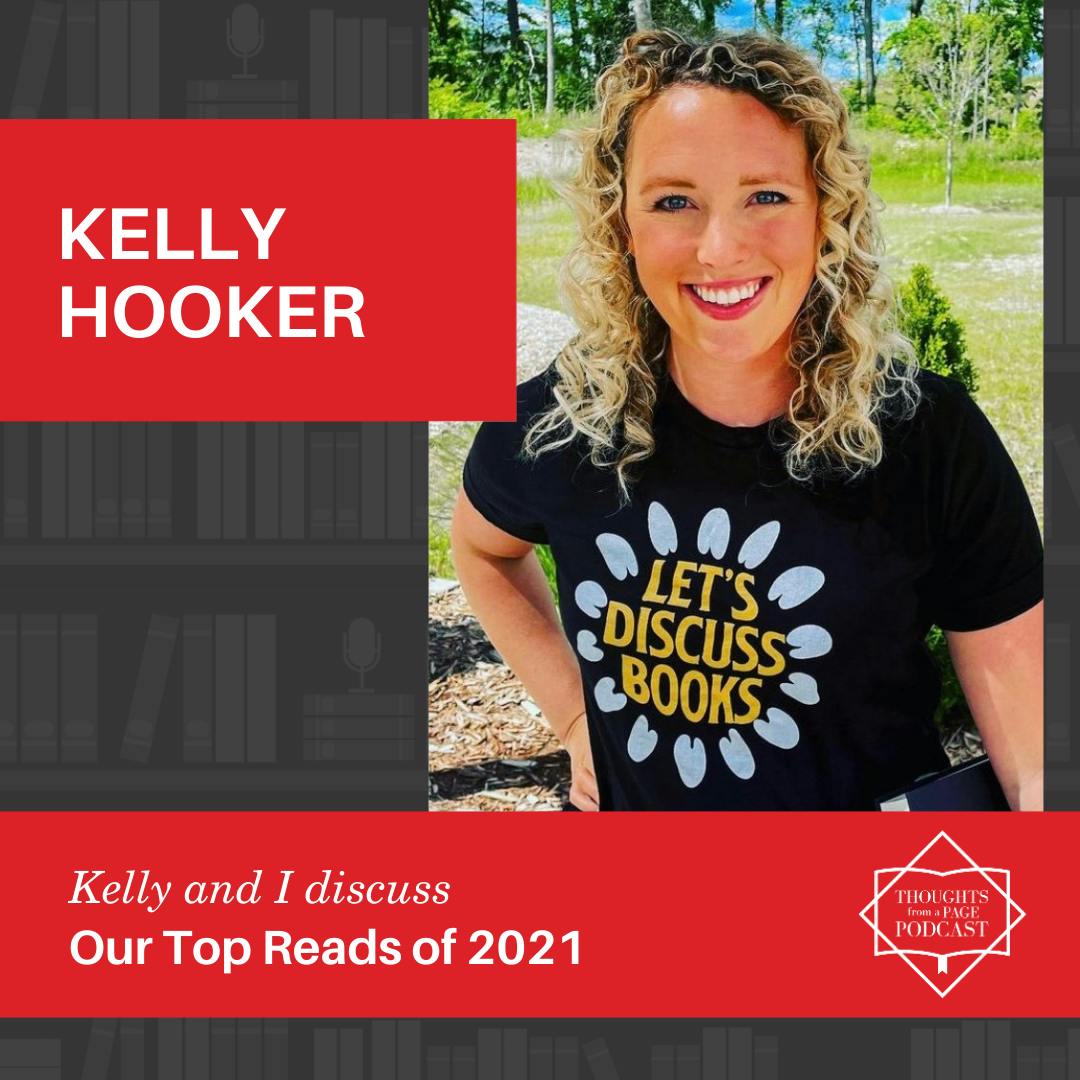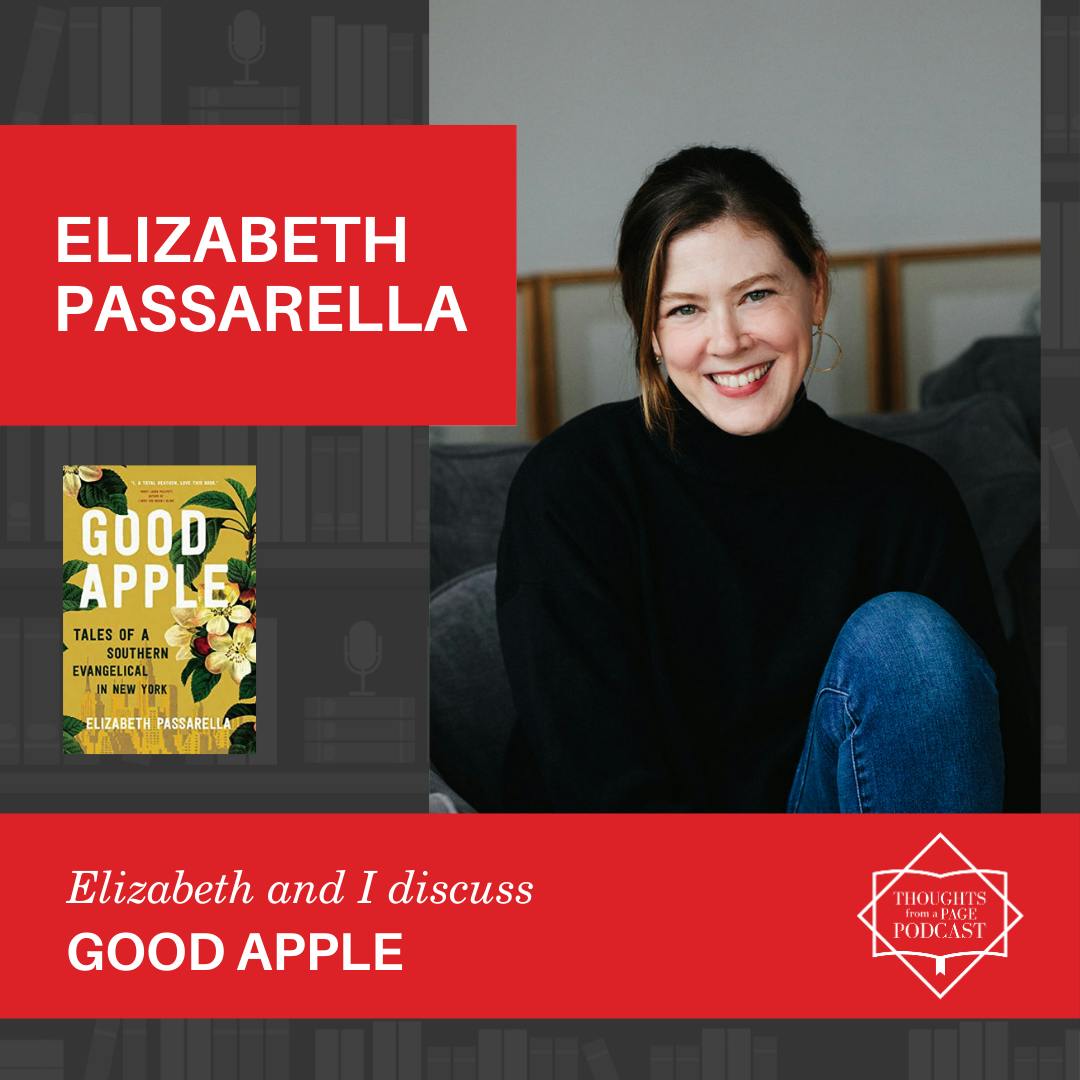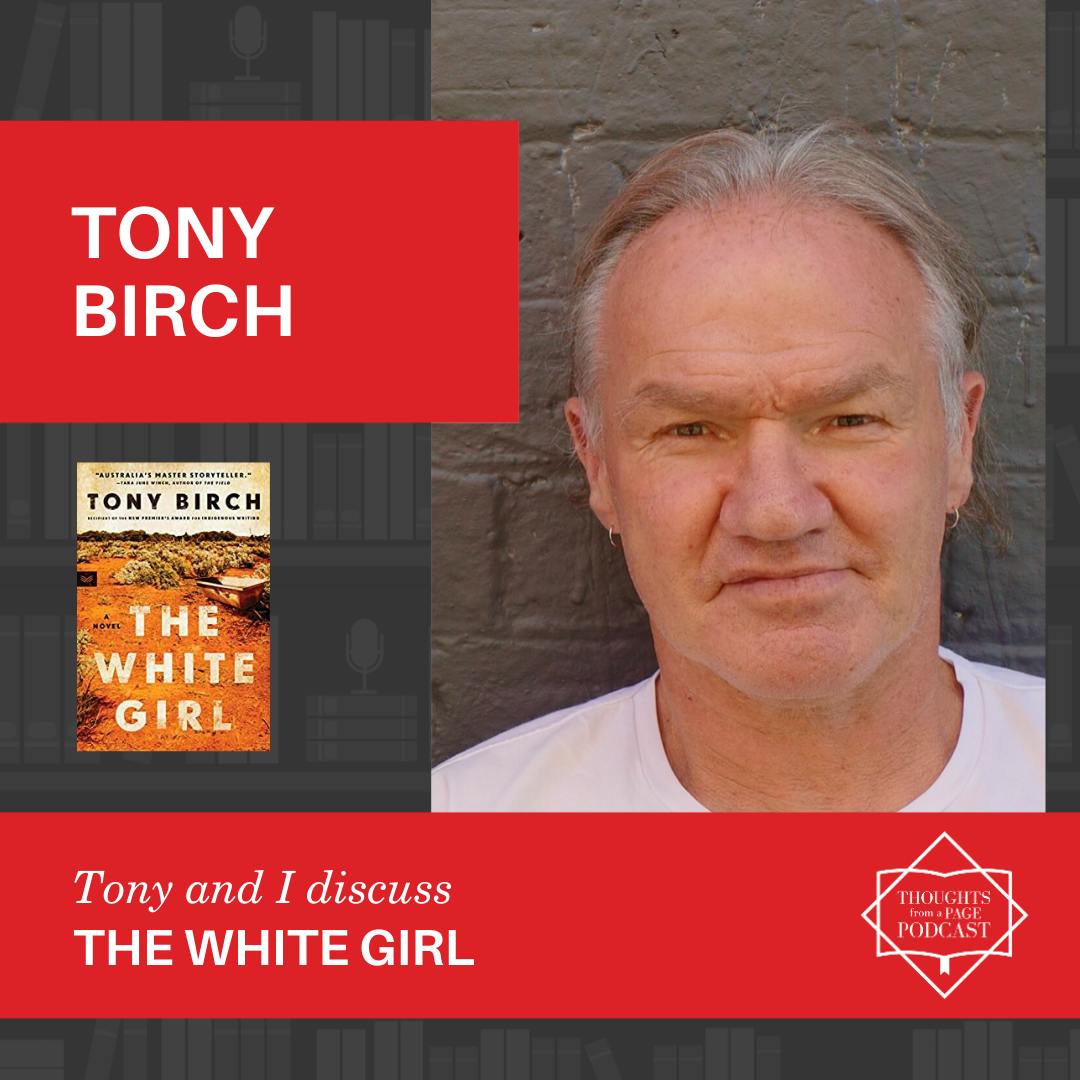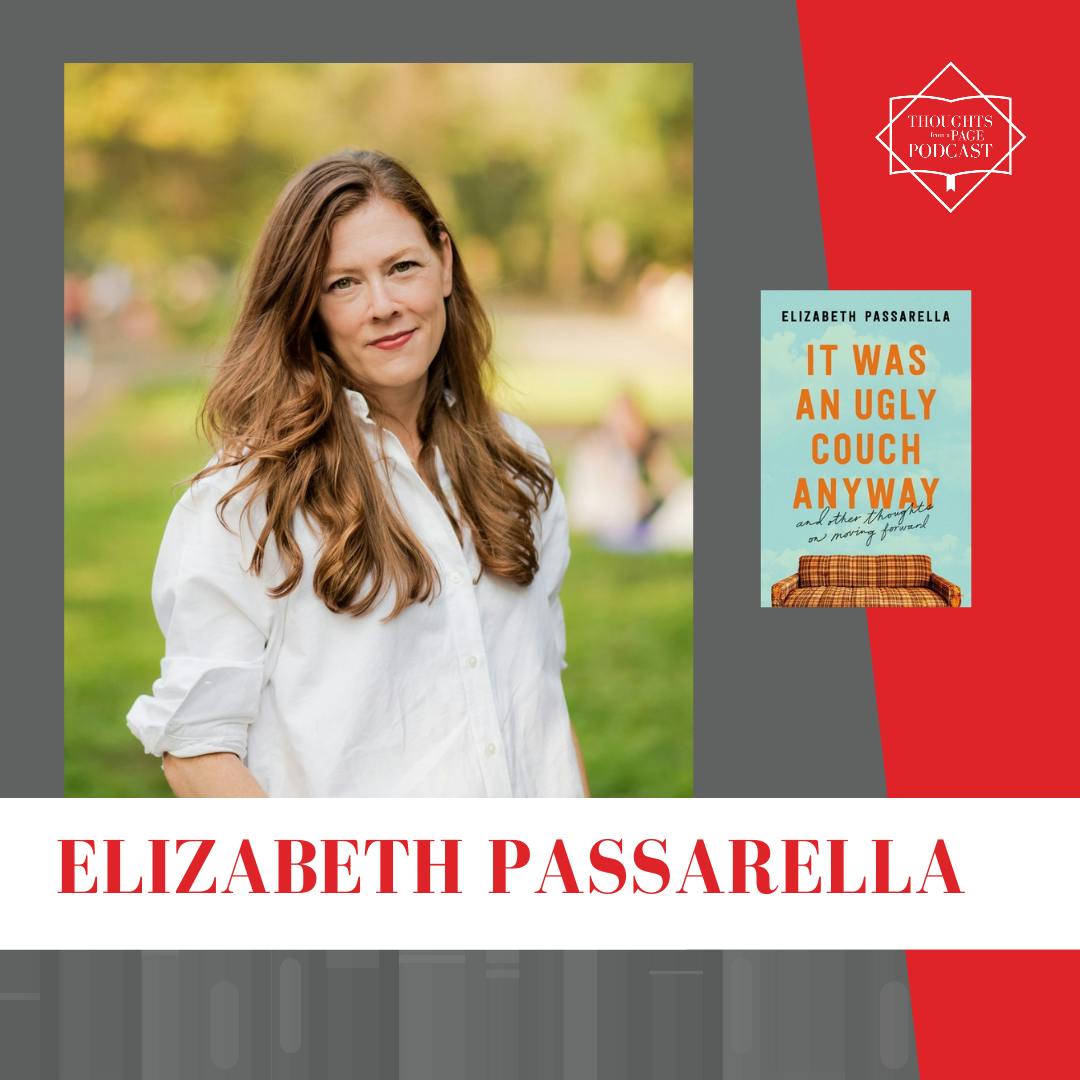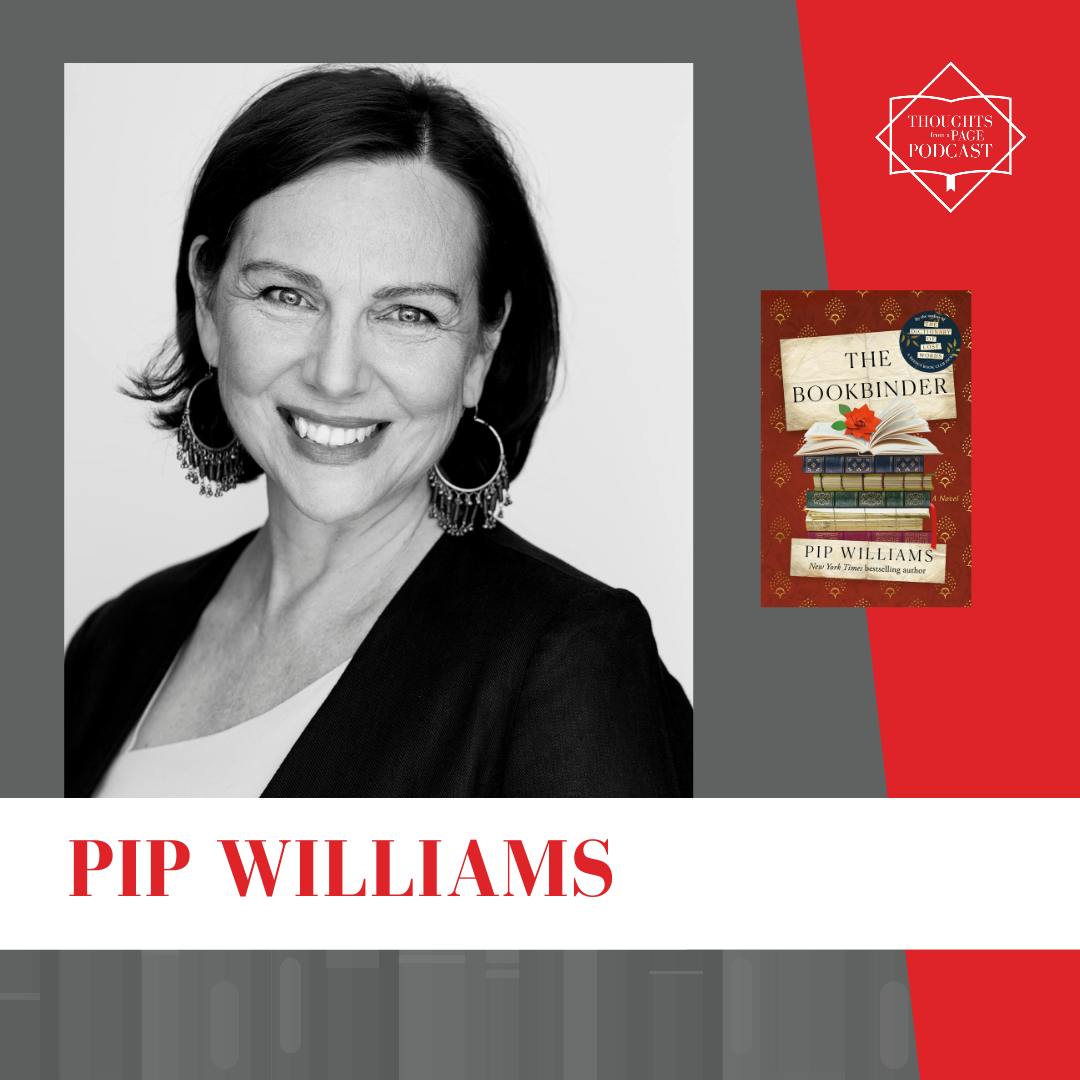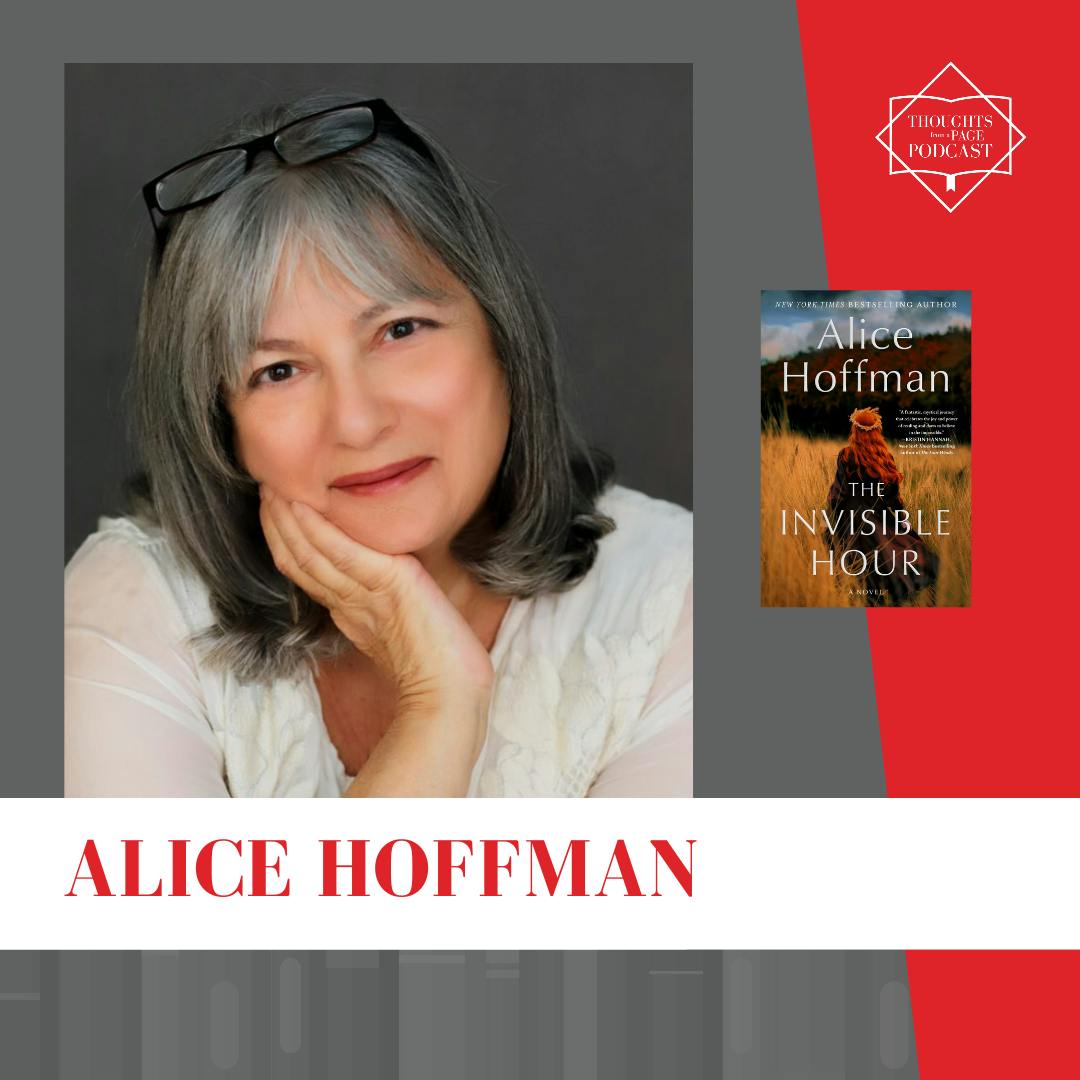
Julie discusses her debut Waiting for the Night Song, why she loosely based the plot line on a cherished children’s book, choosing New Hampshire for the book’s setting, the importance and urgency of climate fiction, and much more.
Julie discusses her debut Waiting for the Night Song, why she loosely based the plot line on a cherished children’s book, choosing New Hampshire for the book’s setting, the importance and urgency of climate fiction, how every region of our planet is interconnected, and much more.
Waiting for the Night Song can be purchased at Murder by the Book.
Julie’s 4 recommended reads are:
- The Kindest Lie by Nancy Johnson
- The Lost Apothecary by Sarah Penner
- Hades, Argentina by Daniel Loedel
- Wild Women and the Blues by Denny S. Bryce
Interested in the Conversations from a Page online event with Julie Carrick Dalton and Nancy Johnson? Find more information here.
Thanks to Densie Webb for sponsoring this episode. Her novel When Robins Appear can be purchased here.
If you enjoy literary fiction and want to listen to more episodes like this one, try Liese O'Halloran Schwarz, Sarah McCraw Crow, and Ava Homa.
SUMMARY KEYWORDS
book, blueberries, story, people, writing, beetle, new hampshire, cadie, climate change, julie, pine beetle, encapsulates, woods, cover, sal, thought, year, hope, rules, changing
SPEAKERS
Cindy Burnett, Julie Carrick Dalton
Cindy Burnett 00:01
This episode is sponsored by Densie Webb's novel When Robins Appear, which is available now and the link is in the show notes. When Robins Appear tells the story of young love, past love, keeping secrets and the agonizing decisions women may be forced to make about forming families. And how they all come together to impact the Earle family, Deb, Richard and their teenage daughter Amanda. In the end, it's about how a crisis can challenge even the most loving families and how they are sometimes able to recreate themselves, even when the result is bittersweet. You can purchase When Robins Appear wherever books are sold. This is the Thoughts from a Page Podcast where I interview authors about their latest works. My name is Cindy Burnett, and I love to talk about books. If you have any comments or feedback for me, feel free to contact me through my website thoughtsfromapage.com. If you enjoy these podcast episodes, you should check out the literary salon tab on my website and sign up for our newsletter. We are hosting some fabulous online events in 2021, including my guest today, Julie Carrick Dalton. Julie grew up in Maryland and on a military base in Germany. As an adult, she bounced around from Seattle to Dallas to Virginia, before finding her true home in Boston, where she has lived for more than 20 years. A Tin House alum and graduate of GrubStreet's Novel Incubator. Julie holds a Master's in Literature and Creative Writing from Harvard Extension School. She is a frequent speaker on the topic of writing fiction in the age of climate crisis. Mom to four kids and two dogs, Julie is a passionate skier hiker and kayaker. She also owns and operates in organic farm. I hope you enjoy the interview. Welcome, Julie. How are you today?
Julie Carrick Dalton 01:55
I'm great. Thanks for having me.
Cindy Burnett 01:57
Well, I am so excited to talk about Waiting for the Night Song. I just absolutely loved it. And I have been so excited to talk with you and just hear all about your process for writing it.
Julie Carrick Dalton 02:07
Oh, great. I've been working on this book for 13 years. So for me, this just feels like such a moment that it's finally getting out in the world. I'm excited to talk to people who have read it.
Cindy Burnett 02:16
Well, why don't we start out by you just talking a little bit about the book for those who haven't read it?
Julie Carrick Dalton 02:20
Well, Waiting for the Night Song is a dual timeline narrative, and both timelines are told from the perspective of Cadie Kessler. In one timeline, she's 11 and the other she's 38. And it follows the story of Cadie and her best friend, Daniela. In the adult timeline they are estranged, they haven't seen each other since they were kids. And the book starts when Daniela calls Cadie to come back home, and they have to face up to this traumatic secret they covered up when they were 11 years old. So when Cadie goes home, she has to face up to some secrets from her past. But she's also wrestling with a lot in her present. She's a forestry expert in the present, and she's trying to prove there's an invasive beetle that's moved into their community in New Hampshire. And not everybody's ready to accept that it's there, because a lot of scientific models indicate it shouldn't be there yet. So she's trying to prevent this beetle infestation that could lead to a fire, she's trying to reconcile the most traumatic event from her past with her best friend, and it's all set against the backdrop of changing climate in this small New England town. And I'm really in love with the wild places in New England, with the mountains and the lakes and the forests. So writing this book felt really great to me just to be at its floor, all these places from the viewpoint of a child and from an adult.
Cindy Burnett 03:31
You must have had to do all sorts of research because you really draw on a variety of things - the pine beetle, climate change generally, the forestry service, racism. So tell me about your research.
Julie Carrick Dalton 03:43
I'd say the biggest part of the research was the climate science and the beetles. So I stumbled upon an article about this pine beetle called the mountain pine bark beetle. And it's that same beetle that you hear about in California and Colorado that's been devastating forests and causing a lot of these catastrophic fires that have been in the news for the last several years. So I started writing this book 13 years ago, and we weren't hearing a whole lot about this beetle back then. And as I wrote and wrote, the beetle became more prevalent in the news and the fires got bigger. And the story felt like urgent to me, the closer it got to publication. I did a lot of reading, connected with some entomologists online, read a lot of articles about this beetle about the conditions for the beetle, also about the ecology in New Hampshire, because this beetle does not exist in New Hampshire. That's a speculative element of the story, that I wanted to create a feeling that this could happen anywhere in any small town. That these environmental changes we're experiencing, they're changing the ecology everywhere. We don't know exactly what's going to happen. We can make predictions. So I spend a lot of time trying to reconcile truth and fiction, in terms of this, that climate change elements that I had to extrapolate some ideas, those reconciling a lot of truth and not truth at the same time.
Cindy Burnett 04:57
That's so interesting. I didn't realize at that that part of it was something that you had added to the story. We go to Colorado every summer and have for years. And I started about a decade ago noticing these piles of trees and Rocky Mountain. They cut them down and then they put them in these kind of cone-like structure things and then they burn them. Every summer as we've returned, there are more and more of them as the pine beetle infests more trees in Rocky Mountain. So that's actually one of the reasons the story really appealed to me, because we've watched the devastation there every year as we returned, and I was curious how they gotten all the way to New Hampshire. So that's interesting.
Julie Carrick Dalton 05:33
Yeah, they are moving. I mean, it is they are expected to come further east. They're up in areas of Canada. I believe they're further east in Canada than they are in the United States, but they are moving. It is likely that they will, at some point, make it all the way east. But for the purposes of the story, I wanted it to be something that hasn't happened yet. I wanted it to feel like something that could happen at any moment, that things are changing that our world is in flux. So I took a real event and superimposed it on an area where it's not happening yet.
Cindy Burnett 06:00
Well, you just kind of got ahead of it. Because you know what, like you said it will be there eventually. So you just went ahead and told the story of what will happen when it does get there.
Julie Carrick Dalton 06:09
Yeah, I mean, I hope it doesn't. I really hope it doesn't that I suspect, if not this particular beetle, something else very similar to this will happen.
Cindy Burnett 06:15
The other issue that I knew nothing about was the federal lands issue. And Cadie having trouble conducting research on parts of federal land. And I thought that was all fascinating.
Julie Carrick Dalton 06:26
Yeah, so the question of the federal lands is an interesting one because as I had Cadie doing the research, I wanted to put some obstacles in front of her. And I follow a lot of scientists online, and I started seeing some scientists talking about not having access to federal land that they used to. Administrations change things, hopefully, things, will be different. And so I exaggerated situations that are existing that there are federal lands in this country that have had, that have been closed off to environmental research. It's not as prevalent as I would have made it in the book. I wanted to make it feel urgent, something to be afraid of in the future. But it is happening. And what what happens is that there's some environmental projects that have been going on for decades, where they've collected data every year. And when they close off the research, even if it's just for a few years, when we get a new administration, and one that opens land back up, that data is lost forever. Like those few years where the data isn't collected, it really can damage long term environmental research. So I wanted to bring that into the story. And I also wanted to bring in the idea that scientists are fighting for truth, and sometimes truth is bigger than a law. And how do you reconcile that? Putting Cadie against the government? She's just this quiet, solitary scientist trying to do her work. But she knows she's right. And so she has to choose. Is she going to follow the safe way out and stop doing the research because the federal lands were closed off to her or is she going to try to prove that this beetles there, and that it could be killing off a forest? So I pushed her and had her challenge the government.
Cindy Burnett 07:54
Well, I thought that was very interesting. And I just was kind of curious about it. And I mean, it makes sense. It's such a timely issue. We see so much of that right now - the science deniers and people wanting to avoid some of these truths. There's something that it goes against that they don't want to admit to. So instead, they're denying the science. And so I just thought it's a very relevant topic.
Julie Carrick Dalton 08:14
Yeah, it's something I wanted, I would like to explore that more in my future books, it's something that I'm working on in my second book too, kind of reconciling regulations and the truth because sometimes they don't work well together. But as far as Cadie's role in this, is I wanted it to be pushing her and for her not to have been a crusader. She never is somebody who wanted to be, you know, she has a hashtag named after her in the story that's related to her work. And she doesn't like it. Like she doesn't want to be in front of the camera. She doesn't want to be the person who's the champion of a topic. But when it comes to proving there's a forest fire heading towards her hometown, she doesn't have a choice. So she has to make the hard decision to you know, defy the regulations and fight for the truth.
Cindy Burnett 08:56
I love that whole hashtag part of the story. I thought that was really funny.
Julie Carrick Dalton 09:00
Yeah, and I did that because I thought that would be something that Cadie would hate. She would not like the hashtag #cadenceunderfire, because Cadie, her name is actually Cadence. And so some people in the story call her Cadence. So the hashtag #cadenceunderfire follows her as other environmentalists and academics start getting behind her because they are worried about their own research as well. So I threw that in there, because I knew it was something Cadie would hate.
Cindy Burnett 09:26
I loved it. I thought it was so entertaining. And obviously #cadenceunderfire has sort of double meaning - she's under fire, but then all these fires related to the pine beetle. So I just thought that part was very clever.
Julie Carrick Dalton 09:35
Thank you.
Cindy Burnett 09:37
Well, let's back up a little bit, because I should have asked this early on. But I was so interested to hear about the pine beetle and some of those things. How did you come up with the subject matter? I mean, what got you started on the pine beetle, and then just the story in general?
Julie Carrick Dalton 09:49
it's kind of it was a long process. It took me 13 years to write it. So the story has evolved a lot. The original part of the story started with the little girls picking blueberries. That's where it all started. So I have four kids, and when they were younger, we used to spend a lot of time picking blueberries in a canoe on the lake. And we would go into these big wide open areas edging the lake, and we would pick blueberries. There were no houses nearby, it was just this wide-open swath of shoreline. And some of my kids started asking me, whose berries are these bushes? Are we stealing them? And so I found myself trying to justify why it was okay and saying, well, we won't take all of them or nobody's going to pick them anyway. And we don't take too many. If we don't get out of the boat, we're not trespassing. And all of a sudden, I realized I was creating rules to justify taking the berries. And truthfully, nobody's going to care that kids were taking a few handful of berries on these big, wide-open pieces of land. But I didn't like that I was teaching my kids that you can justify behavior by creating rules. So I took that idea, and that became the Poachers Code, which in the story is this list of rules that Cadie and Daniela use to justify that they're taking blueberries that don't belong to them. And I wanted to push this idea of rules and following rules and how we often in life, we rely on all sorts of manufactured rules to justify bad behavior. Look at you know what's going on in the world today, you could say that police can, you know, rely on bad behavior and say, I was just doing my job, and people can criticize them. Or you could say religion, people rely on religion to justify bad behavior, or you know, any kind of club you belong to, it's so easy to sometimes say I was just following the rules, when in certain situations, maybe you should stand up and challenge the rules. And in most cases, all of these rules are good rules. But I find people twist rules. So I wanted to take my characters in the story and have them manufacture a code of ethics, and then have them use it for a not-so-justifiable purpose. And in this case, it's covering up a crime. So I had these little girls doing this very benign thing of taking some blueberries. And then I pushed it, and things get dark. And they turn back on this code of ethics to justify their behavior. And that's I was writing the story, you know, I had them out and you know, the lakes and the woods of New Hampshire. And I love wildlife and nature. And I loved revisiting that those same locations as an adult and imagining how it would be different. And that's where the climate change element came in. And I'm imagining the same location decades in between and how climate change might have changed this. And then I wanted to think about how the community would respond to those changes in climate. So it would really involve that it started out because I took my kids blueberry picking.
Cindy Burnett 12:34
And then it really evolved from there. (laughs) The blueberry portion of the story actually reminded me of Blueberries for Sal, one of my favorite stories when I was young, and then to read to my kids when they were young.
Julie Carrick Dalton 12:46
So that's really funny that you should say that. I do reference Blueberries for Sal in the book. And Daniela actually ends up naming her daughter Sal. But I actually, the story structure is loosely based on Blueberries for Sal - a little girl goes blueberry picking, make some bad decisions, gets gets distracted, she confronts a bear, she makes better decisions, and she eventually finds her way home. And I did that because that is the book that my mom read to me more than any other book that I can remember. And I read it to my kids until my book fell apart. So I actually took those beautiful illustrations from the end pages of Blueberries for Sal, and I framed them and then they're in my kitchen. So that is one of the most cherished books in my life. And I love that my book made you think of that.
Cindy Burnett 13:30
Well, I was so happy when it then showed up and then Sal is named Sal, because as soon as the blueberries were there, I was like, Oh, this is one of my favorite all time books. So then I was just very happy that it wove throughout. So that definitely resonated with me.
Julie Carrick Dalton 13:43
Yeah, I'm glad you noticed that. But I wasn't sure if other people would see it.
Cindy Burnett 13:48
Well, I definitely did well, other than Blueberries for Sal, what do you hope readers take away from your book?
Julie Carrick Dalton 13:53
Um, I think maybe this idea of how interconnected everything is and how connected we are to other people and other species and other parts of the world. One of the things I tried to do in the book was focus on this insular, small town in the mountains of New England. But I wanted to make it kind of feel like every town, like this could be any town and we're all in flux. And so the title of the book Waiting for the Night Song refers to this small songbird, and it's a real bird in New England that's endangered. And it spends the winters in the Caribbean and the deforestation and hurricanes in the Caribbean are killing off the habitat for this bird. And so it comes back every year in smaller numbers. It's called the Bicknell's thrush. So every year it's coming back in smaller numbers. So New England, we're actually feeling this direct impact of hurricanes in the Caribbean, that people might not make that connection. And then with the the pine beetle that someone might not think, oh, a beetle that migrated here could cause forest fires, which seems like a strange connection. And then there's the connection between environmental impacts in Central America and climate refugees. So what I really would like people to think about is how even this tiny little town in the mountains in New Hampshire has these invisible threads that lead out all over the world. And that all of the actions we take, somehow, in small ways are going to affect somebody or something somewhere else in the world, and we're probably never going to know where it is. So we maybe think a little more deeply about the actions we're taking and knowing that even if we don't see the implications, somewhere, somebody or something on this planet might be feeling the impacts of what we're doing.
Cindy Burnett 15:30
And that definitely came across in your book. And the other thing that made me think about was, over the past four years, we've become, as a country, more insular, only focus on the United States, not worry about any of our relationships, or really worry about the rest of the world. And I thought your book was a great way, through fiction, to demonstrate how important it is that we maintain relationships and think about people elsewhere, and not just ourselves. Because we are all very interconnected.
Julie Carrick Dalton 15:58
Yeah, absolutely. I tried to not be you know, heavy handed in that and making the species that was in the forefront, and the Bicknell's thrush isn't even if it's a tiny little gray bird, it's very unnoticeable. But it leaves a hole in an ecosystem. And when any species leaves an ecosystem, or is diminished in number, there's like a void in the environment, and all the other species around it in some way, are going to shift to fill that void. And it's like inescapable that we're going to be feeling this all all over the world. And I think you're right, it's so easy to just look at our community or look at the impact, like the water is not rising in my town yet. And I think that there's also this, especially in the United States, there's this very self-centered way of viewing climate change is something that's coming. That it's a looming crisis, we've got a long time to plan ahead. But the apocalypse is already here for a lot of people. There's island nations that are already planning evacuations because of rising waters, and there's places in the US where they're feeling hurricanes worse. And I think there's a lot of privilege that goes into thinking that climate change is coming. Because it's usually communities of color, indigenous communities, poor communities that feel it first and the worst. So I think that this position of thinking that climate change is coming, that it's a future event, is it's a privileged position. And I hope that my book maybe will make people see that it's happening, even if we don't feel it, and we need to open our eyes and maybe look, who is it affecting?
Cindy Burnett 17:27
I didn't think you were heavy handed at all. I actually thought you did a great job of just telling your story, but that it just made me really think and I think it will make other people think. And that those are the best kind of stories where you're not being hit over the head with something, but instead, you're just going about relaying Cadie and Daniela and everything that's happening to them, and then people are going to be realizing, oh, okay, some of this will impact me. I mean, I live in Houston, and Harvey was awful, I mean, just catastrophic. And I think it's just going to continue because we're so close to sea level. And so hopefully, the city's made some changes. But yes, I mean, climate change is here. And if we don't start recognizing that it's going to be a real problem.
Julie Carrick Dalton 18:06
Yeah, that was one of the reasons I thought New Hampshire was a great place to set the story. Because New Hampshire has pretty vast water resources, we're not feeling the, the things that people classically think of as climate change. And that's why I wanted to put it there. And I wanted to show that this, is this is already happening even in quiet ways. And in this little tiny town, I raise the temperature a few degrees in the town, and it affects drought conditions, it affects crops, it affects farm foreclosures, displaced migrant labor. And so I wanted to take the all these little tiny changes that a community might not attribute to climate change, and seeing how these slow burning changes affect the community over time.
Cindy Burnett 18:47
Well, then, after all of these fires this summer in Colorado, in California, certainly the pine beetle should be in the forefront of many people's minds, because I'm sure all of that dead wood really contributed to how quickly those fires spread.
Julie Carrick Dalton 19:00
Yeah, absolutely it did, and it's an ongoing problem. And there are these big wind events actually carry the beetles. And we could be just a couple of big wind events away from these beetles landing in New Hampshire, and it changes everything.
Cindy Burnett 19:12
I was wondering how they migrated. So okay, that's interesting. I mean, I'm sure some of them probably are just slowly moving. But to have the big transplanting from Western Canada over to Eastern Canada, it would seem it would take a lot longer if it was just slowly overland so the wind makes sense.
Julie Carrick Dalton 19:28
Yeah. So there's changes coming and I don't claim to be an expert on the patterns of the beetle and when they're going to come or how they're going to come. But I know things are changing. And they're going to keep changing and just keeping an eye on it. It's going to be a an interesting time that we're that we can't quite predict what's going to happen.
Cindy Burnett 19:47
Yes, which we have seen this year with a totally different type of thing, but with the pandemic that you certainly can't predict what's going to happen and how long it's going to last and how it's all going to end.
Julie Carrick Dalton 19:58
Yeah, no in my next book I do a little bit more forward thinking than I did in this book. My second book is called The Last Beekeeper, and it's coming out in a year, from, also from Forge Books. And it's set in the very near future. And again, I don't put a date on the year, because I wanted it to feel imminent. I wanted to feel like this could happen at any minute. I introduce an event that I'm not going to tell you about yet, but I introduced this unexpected event that causes the collapse of the pollinator populations, and it sends a world into like an economic and agricultural crisis. So I it's also based on real science that I extrapolate, kind of exaggerate and tease some different elements out. But I go even further in that book than I do in this one in terms of teasing out science and the what could happen.
Cindy Burnett 20:43
Oh, that sounds so good. Do you know when it will be coming out? Next year, but do you have a closer time, I mean a month yet? Or do you not know yet?
Julie Carrick Dalton 20:50
It could be as early as January or February next year. My ,my contract said that it would come out a year after my first book. My first book comes out January 12. So I'm guessing winter at some point, if not January, soon after next year. So yeah, I'm really excited about that book. It's, I also keep bees. I sadly lost my bee colony to colony collapse disorder plan. I do plan to get new bees. But it's a topic that's really important to me, and I love bees, and I love writing about bees. So I think that a lot of the similar-type writing style that I used in Waiting for the Night Song in terms of the nature and the woods and the forest of New England. I have a lot of that similar passion for bees. So I hope that if you liked the writing on the first book you'd like the next one too.
Cindy Burnett 21:33
Well, I absolutely love the writing in this one. And so I'm looking forward to that already. I'm going to be keeping my eye out for when the galleys drop, which I know will still be a ways. But it's always fun to just look ahead and then know it's coming.
Julie Carrick Dalton 21:44
Great. Well I'll keep you in mind when we start sending out the early copies.
Cindy Burnett 21:47
Well, and you know, I learned about this one from Pamela Klinger Horn because she posted on Facebook the cover and talking about how much she loved it. And the cover just caught my eye from the very first second. And I always think her recommendations are fabulous. So I immediately emailed Tor/Forge and said please, can I get a copy?
Julie Carrick Dalton 22:04
Yeah, so I love the cover. And I've been getting really great feedback on the cover. And one of the early ways that we started talking about my book was comparing it to Where the Crawdads Sing. My publisher sort of positioning it in that direction. And when they did the original cover, it was washed over in kind of an orange to amber kind of color. And it looks a little too, it was actually beautiful, the colors were really beautiful. But it was a little too close to the colors of Where the Crawdads Sing. So it was funny because I had written back to my editor saying, Do you think we could try purple like that the image is perfect, like the photograph was perfect. But maybe let's try purple. And they didn't immediately do that. But then when they made the presentation to the sales committee, or the sales team, they, somebody on that meeting said, Yeah, I really love this, but could we try it in purple. So they did. And I just love it. I love the range of colors. I think it to me, the cover really encapsulates both storylines, that I feel like it has this kind of almost like whimsical sense of wonder that you've felt from the childhood in the early days when they were just playing and exploring the woods. And it also has its dark edge to it. And along the very bottom, you can see these little embers floating in the air, which I love. I think they just give this little bit of intrigue and maybe like hinting that something's lurking in the woods.
Cindy Burnett 23:24
I agree completely. It's just stunning. And I love purple. So I think that also is what caught my eye about it. And I just loved the color scheme. And like you said, the embers and then once I read it, I just felt like it definitely encapsulated both parts of your story. And it's just stunning. They did a great job.
Julie Carrick Dalton 23:40
Yeah. Katie Clemowitz is my cover designer. And I just think she's fabulous. I think she did a great job interpreting the story in the cover, and I have no idea what they're going to do with my next cover. But um, I'm kind of hoping that maybe she'll be my cover designer again, but I don't know what their plans are.
Cindy Burnett 23:55
Now, maybe you can request it. I don't know how that works.
Julie Carrick Dalton 23:57
Yeah, I think I might do that. Because I think she's fantastic. And I also think she's, she heard me with the things I wanted for my book. I sent them a bunch of ideas and colors and just the general feeling I wanted. And I felt like they, they listened to me. And I don't think that that is always the case. And I definitely feel really supported by my whole team.
Cindy Burnett 24:18
And that's got to be a nice feeling with it being your debut. Just to feel like you're very attached to how it looks and proud of it when you're out there talking about it and showing it to people and just knowing it represents you.
Julie Carrick Dalton 24:29
Yeah, yeah, I agree. And I do feel like it represents me.
Cindy Burnett 24:32
What about the title?
Julie Carrick Dalton 24:35
The title. So when I first started writing this, I'm going to give you the whole progression of all the titles this book has had. I don't think I've told anybody this yet. So the book was originally called The Rules of Blueberry Picking, and I was told that was a middle grade, very cute story.
Cindy Burnett 24:50
Yes, exactly. (laughs) I was going to say that sounds like a middle grade story.
Julie Carrick Dalton 24:54
Then I was like, let's how about the, I guess it was The Poachers Code was next because they're poaching blueberries, and that's the name of the rules that the girls write so I think it was The Poachers Code next. And then it was Stones That Rise. That didn't last very long. There's a lot of stone imagery and this idea of stones rising up out of the New England soil, which is a phenomenon of like, between the freezing and thawing in New England that stones rise up out of the soil and fields every year. So it's like Stones That Rise, that's very great. No, was not great. And then I had come up with a brilliant idea that I was sure this is it. This is the one - Four Degrees because of the whole thing hinges on this four degree change in temperature is what sets everything in motion, all the climate change. And I was like that, that sounds wonderful. That's a thriller, catchy. But my editor thought it sounded too much of a thriller or more of hard thriller kind of story. She was right. So she said, she wanted something that invoked nature, that was lyrical, had emotional resonance. She gave me all these things. And I'm like, Are you kidding? How do I get all that into the title of one story? So I came up with 35 new titles for her.
Cindy Burnett 26:01
Oh, my gosh.
26:02
Yeah, yeah, some of them are terrible, but Waiting for the Night Song was the top on the list. And so I was talking to my editor, Kristen, on the phone. And I said, I've think I've got some titles for you. And I said, the first one is Waiting for the Night Song. And she's like, I'm done. I don't want to hear the rest. But either the rest of them weren't nearly as engaging. And I think that it really encapsulates the song because it refers to that little bird when she's a little girl is very prevalent in the forest, where she lives. But when she comes back as an adult, it's endangered. And it's not there. It's not extinct, though. So it's not like it's gone. She just is waiting for it. And I think that's a theme in the book. I think it encapsulates the idea of longing and waiting. And there's hope because I don't want the story, you know, it is a story of that engages climate change. But there's it's a hopeful story. I hope in the end, the readers don't walk away with a feeling of gloom and doom, I think there's a lot of hope. And I think there's a lot of hope in Katy and in me. So when at the end, when she's waiting for the night song, it isn't like that night songs never coming. It's she's just waiting for it.
Cindy Burnett 27:04
I definitely thought it was a hopeful story. And I loved it. I don't like anything too dark so I was hoping it wasn't going to be super dark. And I didn't think it was at all. It had depth, and there was a lot to it. And the idea that truth will always come out, which I think is an important and interesting topic. And I thought that that was another thing addressed in your book. But I thought in the end, I mean, Cadie made a lot of progress. I mean, she came out of it on the other side, I thought, changed but in a good way.
Julie Carrick Dalton 27:30
Yeah, I think so too. And I was talking with my mother on the phone recently and she was saying that she had a really hard time reading the book and not thinking Cadie was me. Like the whole way from the little girl Cadie to the adult Cadie. And it's funny, because I think there's an awful lot of me in Cadie, just my personality and my interests. And so I think that I couldn't have written a book without hope in the end, because I have a lot of hope myself. So I think that that just came out of from me to Cadie.
Cindy Burnett 28:03
Oh, I love that. That's really interesting. And that's interesting that you were thinking about it, as you wrote. And then your mom immediately picked up on that.
Julie Carrick Dalton 28:10
I think the little girl Cadie, there's a lot of me and her. In fact, the relationship between myself my best friend is a little girl. And Cadie and Daniela is very much modeled, and intentionally, on this friend I had that we used to just go on these crazy wild adventures, and we would, they were all made up. They were never actual adventures. And we would roleplay these ridiculous stories. And we had all these woods surrounding us, we would play in this creek and back behind my house and climb trees and build forts and all those things. And I love that just willingness to run wild in the woods and have fun and adventures and she was definitely the cooler of the two of us. She was a year older than age, just like Daniela was a year older than Cadie. And she's a friend that I lost touch with in high school. And I never kept in touch with her. But I looked her up as I was writing the book. And we've reconnected because of the book, which is kind of fun.
Cindy Burnett 29:00
Oh, that's very cool. Is she near you now? Or she's someplace far away?
Julie Carrick Dalton 29:04
No, I live in Boston now. But she still lives in Maryland where I grew up.
Cindy Burnett 29:07
Well, before we wrap up, I would love to hear what you had read recently that you really liked.
Julie Carrick Dalton 29:11
I could do a whole other hour doing that. I'd say the two books I'm most excited about that are coming out in 2021 are, I know you know about this one, The Kindest Lie by Nancy Johnson. I had been, you know, writing friends with her for years. And I've read early drafts of her book and talked with her through revisions. And I think she's just a really talented writer and a voice that I think a lot of people are gonna be talking about. The book is beautiful. The writing is, it's so polished and it doesn't read like a debut book to me, and it's a story I think people will really want to talk about. The other one is The Lost Apothecary by Sarah Penner, which is coming out in March, and this story it takes place It is a dual timeline narrative. Also, it's about this woman apothecary in the 1800s who invents potions to help women off the men in their life who are giving them trouble. And so she's basically a benevolent serial killer. And it's this feminist twisty, wonderful story of women and their friendships and they're supporting each other. It's, and it's also beautifully written. So I'd say those are the two I'm most looking forward to. I'm also right now, I just today a copy of Hades, Argentina, in the mail today, and I believe that's launching on the same day as mine on January 12, by Daniel Loedel. And that book looks spectacular. And I saw one more I'll plug. I'm also reading right now is Wild Women and the Bluesby Denny S. Bryce, which is getting a lot of buzz. And it's this Jazz Age story, that I think that a lot of people are going to be talking about this one too. I think it was on Oprah's list this year, and it comes out in either the end of March or early April.
Cindy Burnett 30:49
I think it's the end of March because I had just coordinated with her about scheduling her for a podcast interview, and had grabbed her book off of NetGalley last night. It looks really good.
Julie Carrick Dalton 30:58
Yeah. And that cover on that book is just I could stare at that cover forever, because there's so much wonderful detail in it. So yeah, so I'd say those are the books I'm most excited about right now. But there's so many, so many great books coming on.
Cindy Burnett 31:10
Well, and I'll do a plug because I absolutely love Nancy's book, The Kindest Lie, also. So we will be hosting you and Nancy together in February on February 17th. So if people are interested, I'll make sure I put a link in our show notes because that will be a really fun event. You all are friends. Both books are outstanding. So I'm really looking forward to that.
Julie Carrick Dalton 31:29
I am. So I was so grateful for that invitation. Because I think that Nancy and I have a really rare relationship and that we were writing our books together, we queried agents at the same time, we got book deals around the same time, that our books are launching within a few weeks of each other. And that it was actually a point when both of our books were scheduled to be launched on the same day. When we were telling people we were having twins. But her book got rescheduled for a different day, which is probably better. But I'm excited to talk about our journey together because I don't know that I'd be where I am without Nancy being that person I could call and vent and ask for advice. So I'm super excited to talk with her.
Cindy Burnett 32:05
Well, I've enjoyed watching the two of you interact on Twitter. And that's what gave me the idea to pair you together because I could tell you were good friends. And I loved both books. And both books are getting such great press. I mean, every time I turn around one or the other is on another great list. So congratulations to you. And then you know, I will tell her congratulations when I interview her for the podcast and then when you guys are together, but that'll be a really fun event.
Julie Carrick Dalton 32:27
Yeah, I'm looking forward to that.
Cindy Burnett 32:29
Well, thank you so much for your time today. I've really enjoyed talking with you, Julie. And I'm glad you came on the Thoughts from a Page Podcast.
Julie Carrick Dalton 32:36
Thanks for the invitation. It's been a lot of fun. Happy New Year.
Cindy Burnett 32:40
Thank you so much for listening to my podcast. If you liked this episode, and I hope you did, please follow me on Instagram and Pinterest at @thoughtsfromapage, tell all of your friends about the podcast and rate it wherever you listen to your podcasts. I would really appreciate it. Julie's book can be purchased at Murder by the Book where I work part time, and the link is in the show notes. Thanks so much to Densie Webb and her book When Robins Appear for sponsoring the episode today. Thanks to KP Regan for the sound editing, and I hope you'll tune in next time.
























